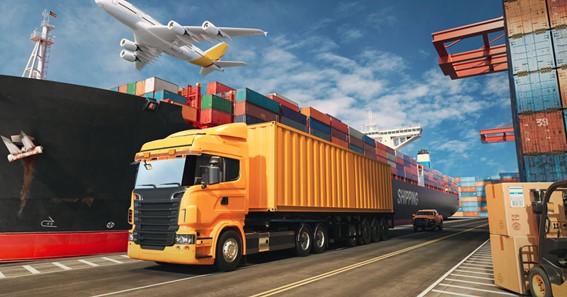Logistics businesses help the transportation of goods and services to be more accessible around the world. A logistics business has a high ROI due to increasing demand in the transportation industry.
Due to this high demand and guaranteed ROI, many wanted to start a logistics business. Some of them failed. They failed because they did not analyze the market and other factors that affect the logistics business.
The logistics business is changing over time. The customers are becoming more demanding with the quality of services.
A good logistics business should be able to adapt to changes. Warp middle mile helps transport goods from port to your warehouse or distribution centres.
A logistics business is a risky business to start without the proper understanding. A business owner must be familiar with how a logistics business works.
Here are some of the things you need to consider before starting a logistics business:
click here – Small Business Marketing Strategies: How to Safely Try New Strategies
Capital
You can categorize the logistic business into small, medium, and large-scale logistics businesses.
Small logistic businesses have relatively lower capital than larger ones. The smaller ones can operate with a phone and computer.
However, there are essential tools like logistics software.
Logistics software is expensive and acquired only with higher capital.
There are options when sourcing out your capital:
- investors
- banks
- bootstrapping
Expenses
A logistics business has a series of expenses you have to consider, this includes:
click here – How To Write A Strong Conclusion For Your Essay
Registration and compliance
You will need expenses for your business registration and compliance. You will also need a license to have a legitimate logistics business.
In the US, the issuance of licenses is from the federal state. The requirements also vary in different federal states.
Here are some registration and compliance that you need to consider:
- Federal registrations like DOT number registration and heavy vehicle use tax
- State-administered registrations like unified carrier registration license and commercial driver’s license
- Hazardous materials registration
- Operating authority (MC Number) including motor carrier of property, United States-based enterprise carrier of international cargo, and freight forwarder of household goods
Considering the amount of time and effort it takes to get all these approvals, most business owners work with a business formation agency like Incfile to acquire the needed licenses and permits. Read this detailed Incfile review in GovDocFilling post to determine if it’s right for your business.
Toll expense
Your logistics business must be able to factor in the cost of using tolls. Trucks used for logistics business usually pay a higher toll than cars and motorcycles.
You have the option to use backroads or secondary roads to avoid paying tolls. The opportunity cost of this choice will be the quality of service to your customers.
Maintenance
You will need to consider the expenses for the maintenance of your business tools. Here are some of the tools and equipment in your logistics business that needs proper care and maintenance:
- trucks
- phones and computers
- warehouses and distribution centres
- material handling devices like forklifts and trolleys
If you’re looking for a property to use as a warehouse or distribution center in Indiana, you can rent out commercial warehouse space Fort Wayne, IN which is known for having an extensive multi-modal transportation network.
Fuel
Fuel is necessary for a logistics business. It will enable your transporting vehicles to deliver the goods and services to the customers.
In the previous years, the cost of fuel has increased rapidly. Here are some solutions to help your business cope with the continuous increase in fuel costs:
- increase the cost to transport the goods and services
- changes in the servicing area
- limit the usage level
Labour and workers
The expenses for labour and workers are essential for a logistics business. As you cannot do the business alone, you need to employ people to help you. Logistics is a big business. Here are some employees you will need to consider for your business:
- drivers
- managers
- assistants
- warehouse labourers
- logistics software manager
Training and development
You will also need to spend on training and development of your employees. A trained and developed employee can help you navigate your business smoothly.
Training and development of your logistics employees are necessary for the following reasons:
- it boosts your business performance
- increases employee engagements
- reduces overheads
- higher job and customer satisfaction
- higher profit for your business
Return
Considering the return is necessary when starting a logistics business. A business owner should aim for a return on investment and not losses. There are ways that you can optimize your returns in a logistics business, this includes:
- statement and analysis of accurate data
- expanding your logistics network
- integration of efficient supply chain practices
- accounting variables
- maximizing your storage capacity
- training and development of employees
- route optimization
Pros and cons
There are many rewards and challenges for a logistics business. As a business owner, you should be able to consider the pros and cons of starting the business.
Here are some pros of starting a logistics business:
- unlimited potential for income generation
- physical activities
- predictable income stream
- a simple business model
- exposure to the community
Here are some cons of starting a logistic business:
- longer sales process
- higher taxes
- work demands time and commitment
- risky job when on the road
- equipment malfunctions and breakdowns

